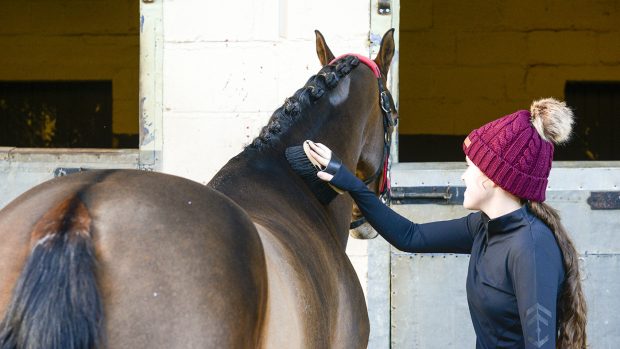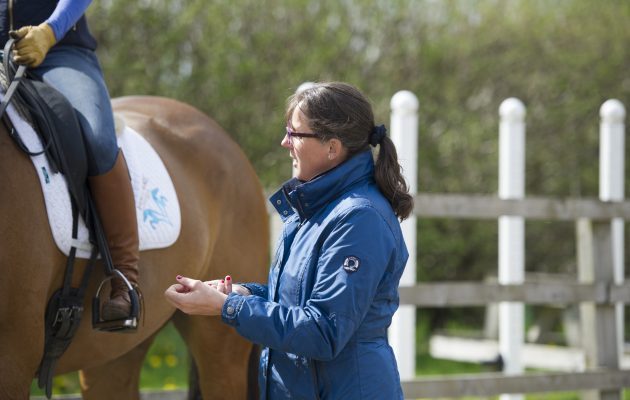Whether you’re five or 50, taking up horse riding can be a wonderful experience. Choosing the ideal riding school to suit your requirements, or those of your children, is key to ensuring this exciting new adventure is a success. Harriet Page rounds up the key factors for you to consider when choosing a riding school.
➤ Find riding schools offering horse riding lessons
What facilities do you need?
The facilities at riding schools can vary hugely, with some having a single outdoor arena with a sole focus on lessons, while others have indoor schools, club houses and their own cross-country courses, and run clubs, social evenings, shows, exams and more. The right one for you depends on what you want to achieve.
Sarah Phillips, director of participation at the British Horse Society (BHS), suggests you do your homework to find out what facilities are available. If you have competitive aspirations or are looking to one day own your own horse, discuss with the school if they can help you to achieve this.
Many schools host low-key shows for their customers to participate in, while others have loan schemes where you can borrow a horse on a set day of the week to learn the skills of horse ownership. They may also run courses in horse handling and care, with exams to test your knowledge, alongside riding lessons.
Sarah says: “While one school might be perfect for you when you start to ride, there is a chance you may outgrow it as your riding progresses.” But equally, if your aspirations are more modest and you just want to enjoy your weekly lesson or hack, the school you start at might be suitable for you long-term.
Check the riding school’s license and approval
Be sure that the riding school you’re considering is properly licensed. Local councils have a public register of licensed riding schools in their district, so it’s easy to check. Licensed riding schools have proven they have suitable qualifications and their horses are well cared for and suitable to be used to teach riding. They also have to have appropriate insurance in case something does go wrong.
Some riding schools also have BHS and/or Association of British Riding Schools (ABRS) approval. If you are considering a career with horses, or want to obtain some equine qualifications, learning to ride at an approved school will allow you to do this.
Both the BHS and ABRS strongly recommend you choose a school that is accredited because it means it has qualified instructors as well as the appropriate safeguarding and health and safety credentials. This gives you the peace of mind that you’re in the safe hands of professionals, with suitable horses and ponies to learn on.
Getting recommendations
A great way of finding out whether a riding school might be right for you, or your children, is to see what other people are saying about it. If you know people who ride, ask them if they can recommend anywhere. But if you don’t have an existing horsey contacts, you can do your research online. This will give you an idea of what people who have ridden at a centre have thought of the establishment. Though each person is different in their preferences, reading reviews may help you decide which ones to call and visit in person and which ones to skip.
The BHS and ABRS recommend visiting riding schools in person before you book in for a lesson. This allows you to get a feel for the centre. It’s also useful to watch a lesson to understand their teaching style. Julian Marczak, ABRS chairman, believes that your initial reaction to a riding school is crucial. He says: “You’ll be able to tell a lot about the stables depending on if you’re greeted with a friendly reaction from staff and whether there is the impression of order and cleanliness.”
While as a beginner you may not be sure what to look for in terms of the condition of the horses, if you get a chance to look in the tackroom that can be informative. If it’s tidy and the tack looks supply and shiny that’s a good sign. Julian believes centres that keep their tack in good condition are more likely to care about the services they’re providing. As a result they are more likely to ensure all aspects of their business are primed for customer satisfaction.
The age difference
Some families like the idea of learning to ride as a group. The problem is that the requirements for children learning to ride is quite different to adults. While one school may be able to cater for you all, it’s unlikely to be during the same session as there are different teaching styles formulated for different age ranges. Equally the riding school that’s perfect for your children, might not be so well suited to you.
Julian recommends centres “keep adults and children separate when it comes to teaching”. This is partly due to safety, but also because teaching children requires a different focus “as you need to teach them, but also produce a good sense of fun”.
Sarah feels children thrive better in a riding school where there are lots of other riders of a similar age, with clubs and other events they can get involved in. In comparison, most adults prefer to “enjoy their ride and perhaps stay for a tea or coffee with their riding group, rather than join a club or work towards certificates”.
How far can you travel?
Another practical consideration is how far you’re willing to travel for your riding lessons – will you go further afield for that perfect riding school? Some schools are accessible by public transport, so should you not have access to a car, you can still manage to ride! Research the travel options for your preferred school to check that the travel works for you.




